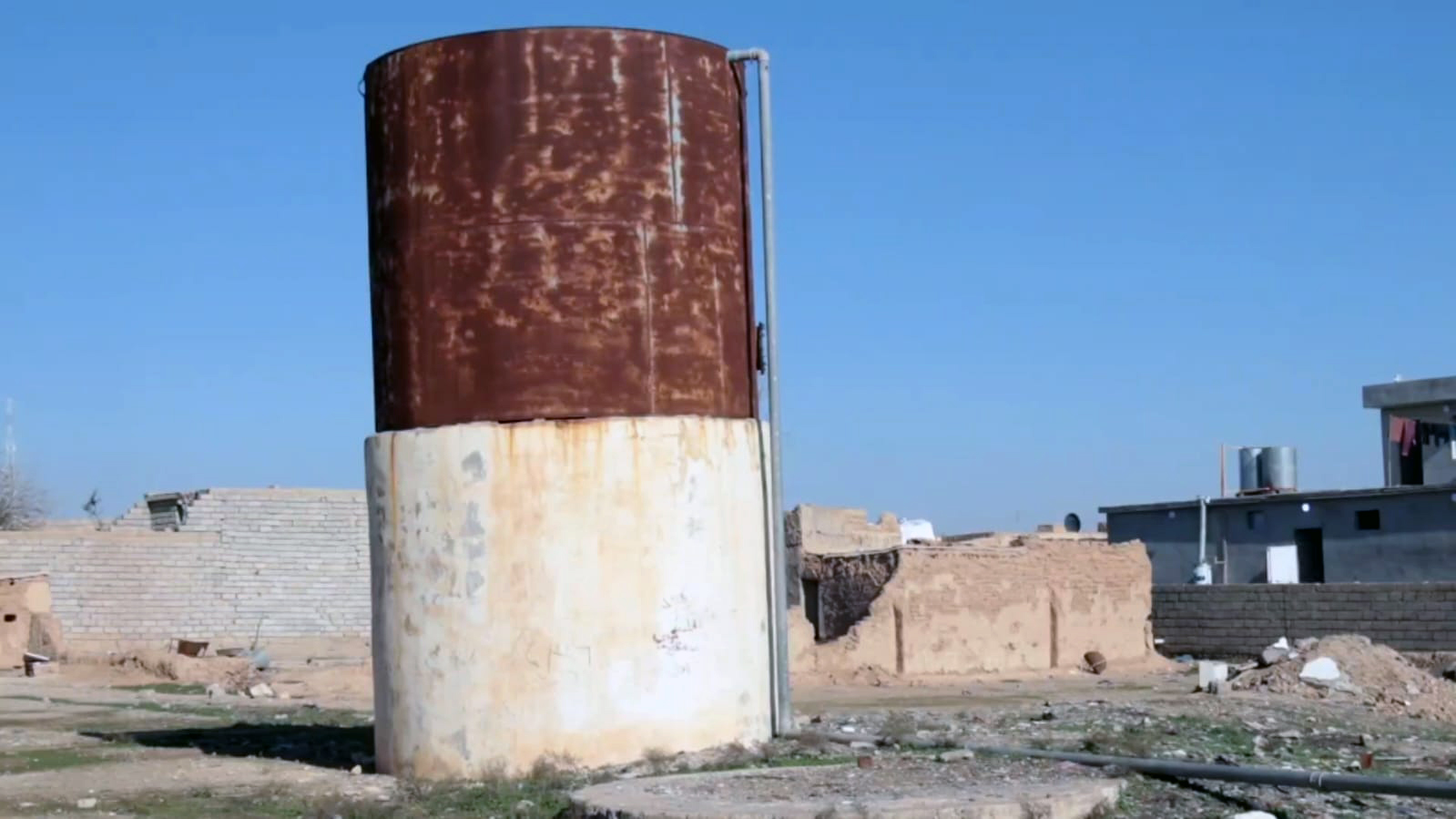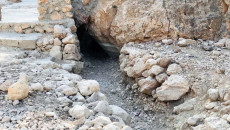Residents of the Tal Banat complex have been forced to buy drinking water delivered to them by mobile tanks for 50 years due to the region’s lack of a project to provide drinking water.
According to KirkukNow's observations, mobile tanks are the only source of providing drinking water , cooking and other household uses for the residents of Tal Banat complex in Shingal (Sinjar) district, west of Nineveh Governorate.
“Every three or four days, we pay 10,000 dinars ($7) to buy clean water,” according to Hadiya Murad (38 years old), who pointed out that this amount burdens many families who suffer from difficult financial circumstances.
Hadiya's family consists of eight individuals. The amount of 10 thousand dinars is enough to buy 2,500 liters of water suitable for human use.
Some of the residents of the complex dug wells, but the water is salty and bitter. “The well water is not very suitable for domestic use,” Hadiya told KirkukNow.
Currently, about a thousand families live in Tal Banat. Most of the residents of the complex have not returned from displacement, as the number of families before the atrocities by the Islamic State of Iraq and Syria ISIS was estimated at 4,000 families, consisting of 22 thousand people.
Shingal district is one of the disputed areas between the Iraqi federal government and the Kurdistan Regional Government KRG. It is located within Nineveh Governorate and is inhabited by a majority of non-Muslim Yazidi (Ezidi) community.
On August 3, 2014, ISIS took control of the district and thousands of civilians were killed, kidnapped and displaced before it was restored on November 13, 2015.
Habib Saleh, director of the Water Department in the Qairawan sub-district, told KirkukNow, “We have a large project to provide clean water to Tal Banat and its surrounding areas, which includes 14 wells.”

The project, which has not yet entered the implementation phase, is funded by the United Nations Development Program (UNDP) and will be completed in four phases, with the aim of providing drinking water to the Tal Banat complex, Kocho and Qiny areas of Shingal district.
This project comes at a time when Iraq faces risks represented by water scarcity, drought, and environmental imbalance, as it ranks fifth among the countries in the world most affected by climate change, according to the United Nations.
“We suffer from water scarcity in summer and winter as well. This crisis goes back a long time and no party has intervened to solve this problem,” says Murad.
Tal Banat Complex is administratively affiliated with the Qairawan sub-district, 30 kilometers southeast of the center of Shingal. The complex was established in 1975 to include Yazidi citizens who were forcibly deported from the villages of Mount Shingal by the Baath regime at the time.
Shingal is home to more than 40,000 hectares of agricultural land and most of that area relies on rainwater, while the amount of rainfall in Iraq has decreased significantly for the last two years as water scarcity has become a challenge for several countries due to climate change.
There are two administrations in Shingal; One works in Duhok Northern Province funded by the KRG and the other in the center of the district, except for the self-governing council, which is considered close to the Kurdistan Workers Party PKK, which fights Turkey since 1980s and holds territories in Iraqi Kurdistan Region IKR and the disputed territories between Baghdad and Erbil.






